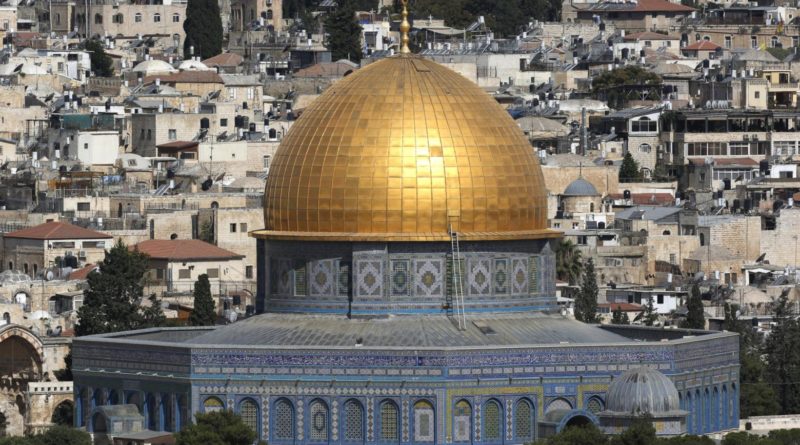U.S. to Recognize Jerusalem as Israel’s Capital, Trump Says, Alarming Middle East Leaders
WASHINGTON — President Trump plans to recognize Jerusalem as the capital of Israel and move the American Embassy there, upending nearly seven decades of American foreign policy and potentially destroying his efforts to broker peace between Israel and the Palestinians.
Mr. Trump’s decision, a high-risk foray into the thicket of the Middle East, was driven not by diplomatic calculations but by a campaign promise. He appealed to evangelicals and ardently pro-Israel American Jews in 2016 by vowing to move the embassy, and advisers said on Tuesday he was determined to make good on his word.
But the president, faced with a deadline of this past Monday to make that decision, still plans to sign a national security waiver to keep the embassy in Tel Aviv for an additional six months, even as he set in motion a plan to move it to Jerusalem. Officials said the process would take several years.
More significantly, Mr. Trump is to announce his formal recognition of Jerusalem as the Israeli capital in a formal speech at the White House on Wednesday, when he will become the first American president to take that step since the founding of Israel in 1948.
Mr. Trump spent Tuesday morning explaining the policy change in telephone calls with Prime Minister Benjamin Netanyahu of Israel; Mahmoud Abbas, the Palestinian Authority president; and to Arab leaders who warned him that it would disrupt the peace process, perhaps fatally, and could unleash a new wave of violence across the region.
“Moving the U.S. embassy is a dangerous step that provokes the feelings of Muslims around the world,” King Salman of Saudi Arabia told Mr. Trump in their call, according to Saudi state television.
Late on Tuesday, Palestinian national and Islamic groups issued a joint statement calling for three days of “popular anger” to protest Mr. Trump’s move, beginning on Wednesday throughout the Palestinian territories and in demonstrations at United States embassies and consulates around the world.
Fearing attacks, the American consulate in Jerusalem barred employees and family members from going to the Old City or the West Bank, while the State Department urged embassies around the world to tighten their security.
Jerusalem is one of the world’s most fiercely contested swaths of real estate, with both sides disputing each other’s claims. West Jerusalem is the seat of Israel’s government, but the Palestinians view East Jerusalem as the capital of a future Palestinian state, and most of the world considers it occupied territory. Jerusalem’s Old City has the third-holiest mosque in Islam and the holiest site in Judaism, making the city’s status a sensitive issue for Muslims and Jews worldwide alike.
Mr. Trump’s decision drew applause from some in Israel and the United States, even if Mr. Netanyahu and the Israeli government were studiously silent in advance of the president’s speech.
“The U.S. recognizing Jerusalem as Israel’s capital is a positive and important step, particularly amid Palestinian efforts to undermine the historic ties between the Jewish nation and the City of David,” said Amos Yadlin, executive director of Tel Aviv University’s Institute for National Security Studies.

